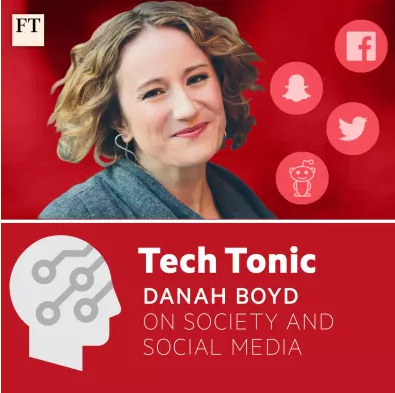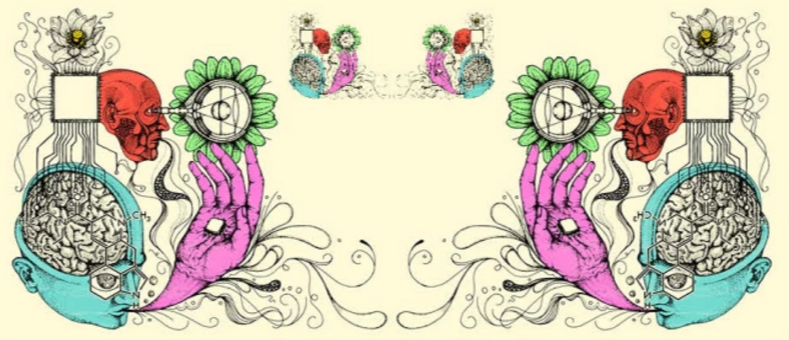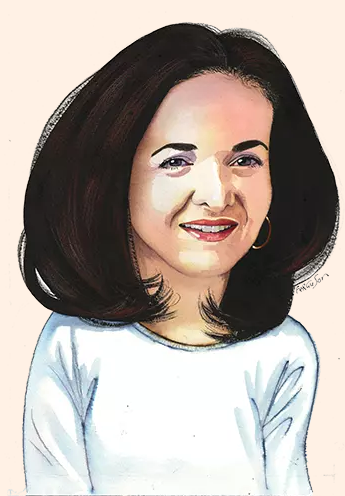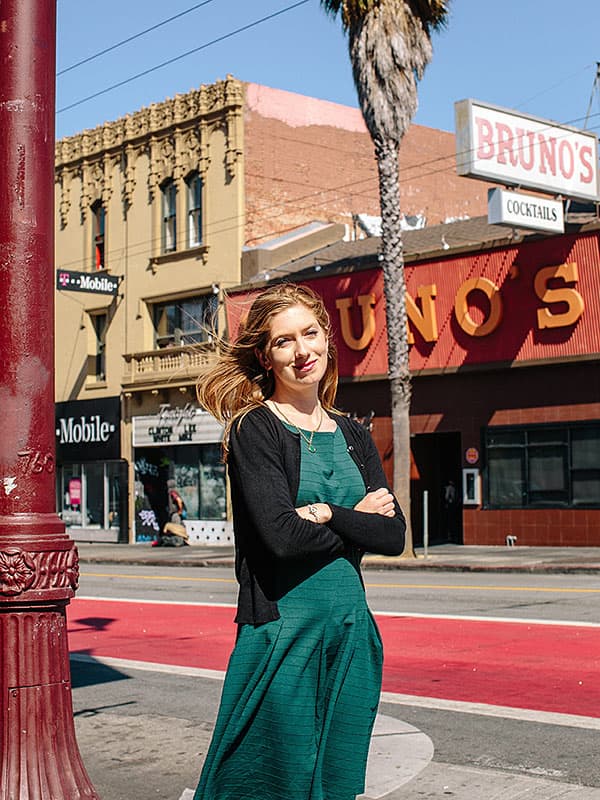|
Soaring drug prices - and ever larger bills at the pharmacy counter for patients - have made the price of prescriptions are core political issue. I followed presidential candidate Bernie Sanders as he accompanied diabetics across the border into Canada to buy insulin, where it is a tenth of the price. This FTWeekend magazine front cover also included astute analysis of why drug prices are so much higher in the US than in the rest of the world.
1 Comment
12/16/2019 1 Comment How Facebook Grew to Big to HandleI followed Facebook from a social network with less than a billion users to a behemoth that was accused of spreading misinformation that undermined democracy and allowing users to incite a genocide in Myanmar. I wrote several features about the company, including this FT Weekend cover on How Facebook Grew Too Big Too Handle - and another on Max Schrems, the man who took on Facebook and won.
It is a good time to be a history graduate (as I am) in Silicon Valley. For years, the tech industry shunned those who chose to study the liberal arts. Venture capitalist Marc Andreessen summed up the attitude in 2012, claiming that the average graduate with a degree in English would “end up working in a shoe store”.
Now, though, the Valley is realising that there is value in knowing more about the world than bits and bytes, maths and machine learning. Tracy Chou, a software developer who has worked at Pinterest and Quora, wrote recently that when she studied engineering at Stanford, she thought that was all she needed to learn. But when she left a world “circumscribed by lesson plans, problem sets and programming assignments”, she realised she needed more context to engage with the impact of technology on society. Read more of my column on 'How Silicon Valley learned to love the liberal arts' here. Other recent FT Weekend columns include how Burning Man legitimizes the tech industry, the problems with the alternatives to Facebook and the dangers of the YouTube algorithm, when unleashed on kids. I've been enjoying my interviews for the FT's Tech Tonic podcast, out weekly. I spoke to Danah Boyd of Data & Society about disinformation campaigns online and sexual harassment in the tech industry and to Mary Lou Jepsen about her new start-up Openwater's plans to develop a ski helmet-sized imaging device that will one day read minds. Other podcast interviews include Elisabeth Mason, founding director of the Stanford Poverty & Technology Lab, Mehul Patel, chief executive of Hired, on recruiting in Silicon Valley, and Jeremy Johnson, chief executive of Andela, on building a team of engineers in Africa.
Diane does not look like someone who would drug your venison chilli. She sits on a San Francisco patio, her dewy blue eyes lucid, her blonde, subtly asymmetrical hair recently trimmed, her white jeans spotless. It is noon. I imagine she has enjoyed several fruitful meetings. Now, she will probably advise me on the meditation app keeping her serene.
“I don’t do coffee, I do acid,” she says. The declaration that she takes a Class A drug does not distract her from nibbling a chunk of salmon in her taco bowl. The 29-year-old start-up founder began microdosing LSD — tiny doses every few days — in January. At just a tenth of a tripping dose, she does not experience psychedelic effects. Rather than swirling in a magical universe with pink elephants, she says microdosing has improved her productivity, creativity and helped her focus. On LSD, she is able to concentrate when developing company strategy, speed through user design sessions and sparkles making new contacts. I met the microdosers and the old hippies for this FTWeekend magazine feature on how Silicon Valley has rediscovered LSD. I chose LSD as a way of telling the story of how San Francisco is changing and the conflict between millennial tech workers and the baby boomers who made the city famous. Read more here. Sitting in the sunny garden of The Battery — the “see and be seen” private club for a San Francisco tech crowd that doesn’t care too much about how they look — Nicole Quinn, a partner at venture capital firm Lightspeed Venture Partners, told me about her plan to get out of the bubble chattering away around us. How? By taking a road trip across the US.
Snap-happy tourists have long posed next to the billboard-sized “Like” sign outside Facebook’s headquarters, in awe of seeing the real-life company behind the app. But it has taken until 2017 — and a political situation the tech industry sees as a crisis — to get Silicon Valley truly interested in the real lives of its users. I write regular columns for the FT magazine on the culture of the tech industry. Read more on 'How Silicon Valley discovered the rest of America' here. Other columns include the world of the Valley intern, ageism in Silicon Valley and how Peacetech is helping refugees. Dressed in a long white jumper over pale blue jeans, with her black hair blow-dried into a shiny shell, Sheryl Sandberg looks — as ever — supernaturally composed. She bounds up to hug me then takes the chair next to me at the corner of our table. “Check this out. Do you see this?” she says, studying the menu without pausing for small talk.
Facebook’s chief operating officer is famous for being more open than most executives: about crying in the bathroom at work, or how, as a recent widow, she slept in the same bed as her mother. This is fitting for a company that has redefined the word “sharing”. As we settle into our lunch, however, it is clear openness does not exactly mean spontaneity. Sandberg has to be one of the most on-message executives. Talking about business, she uses such a set phraseology I can almost recite her lines for her. New products are not only in “early days” but being introduced in a “privacy-protected way”. When, at one point, I ask her how she could best describe what it is like to suddenly be a single parent, she confesses it is “lonely, scary sometimes”, then briskly broadens her point to include the plight of poorer single mothers across the US — with statistics. I interviewed Facebook chief operating officer Sheryl Sandberg for the FT's most famous interview slot, the Lunch with the FT. I asked her about Facebook's growing power in the world, her grief at losing her husband and her dating advice for young, ambitious women. Read more here. In chalets scattered across the snow in California’s ski country, a school of the future is taking shape. Warm inside a classroom, teenage twins Laurel and Bryce Dettering are part of a Silicon Valley experiment to teach students to outperform machines.
Surrounded by industrial tools, Bryce is laying out green 3D-printed propellers, which will form part of a floating pontoon. The 15-year-old is struggling to finish a term-long challenge to craft a vehicle that could test water quality remotely. So far, the task has involved coding, manufacturing and a visit to a Nasa contractor who builds under-ice rovers. “I suck at waterproofing. I managed to waterproof one side, did a test of it, it proved waterproof. I made sure the other side was waterproof, put both sides on and both of them leaked!” he laughs. Laurel, already adept in robotics, chose a different kind of project, aimed at developing the empathy that robots lack: living on a reservation with three elderly women from the Navajo tribe. “The experience was just, honestly, it was really . . .” she trails out, her navy nails fiddling with her dark-blonde hair. “They didn’t have running water, didn’t have electricity, they had 54 sheep and their only source of income was weaving rugs from wool.” The Detterings have embraced personalised education, a new movement that wants to tear up the traditional classroom to allow students to learn at their own pace and follow their passions with the help of technology. Mark Zuckerberg, the founder of Facebook, and his wife Priscilla are leading the push to create an education as individual as each child, aiming to expand the experiments beyond the rarefied confines of Silicon Valley. An FTWeekend magazine front cover on Silicon Valley's obsession with personalised education. Philanthropists including Mark Zuckerberg believe technology can help students move at their own pace and pursue their own purpose. Read more here. 10/23/2016 1 Comment Learning the language in San FranciscoI first fell for San Francisco as a teenager holed up in my north London bedroom, reading my mum’s tattered copies of the Tales of the City series. Author Armistead Maupin depicts the city’s eccentrics in the 1970s: gay men dressed as nuns who roller-skated down the steep hills, a marijuana-toting landlady who turned out to be a tenant’s father and a cannibalistic cult hidden in the cathedral.
When I arrived in San Francisco three years ago, it was no longer a permissive haven for exiles from prim provinces. Instead, it had become heaven for developers living by their oft-repeated promise to “change the world” with software. Entrepreneurs on electric skateboards replaced the skating nuns, start-ups delivered marijuana to anyone with an (easily obtainable) medical card and young professionals gathered in the cathedral for yoga on Tuesday nights. An unusual foray into memoir for me, as I try to capture my life in San Francisco for the front cover of the FT's House and Home supplement. Read more here. Feet poking out of the window, Charlie Miller lay across the front seats of his Fiat Chrysler Jeep while it drove, seemingly by itself. Suddenly, it jerked to a halt, as his research partner Chris Valasek, sitting on the other side of the car park, used a laptop to slam on the brakes.
I reported from the Black Hat and Def Con conferences on how automakers are having to tackle the cyber security problems the software industry has struggled with for decades, with mixed results. Read more here. |
AuthorA selection of my work covering technology for the Financial Times' global audience. Archives
December 2019
Categories |







 RSS Feed
RSS Feed
